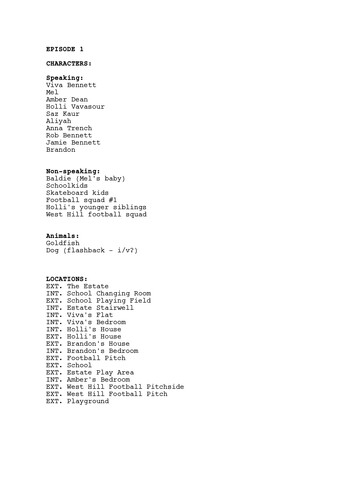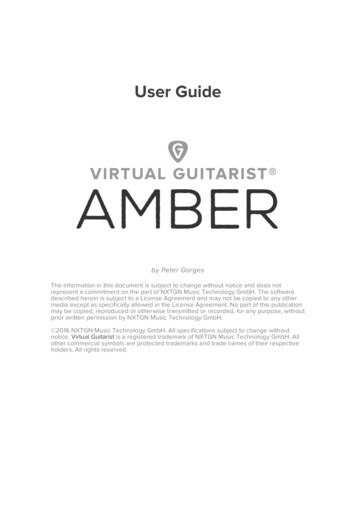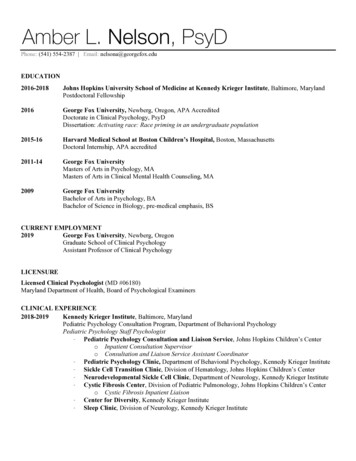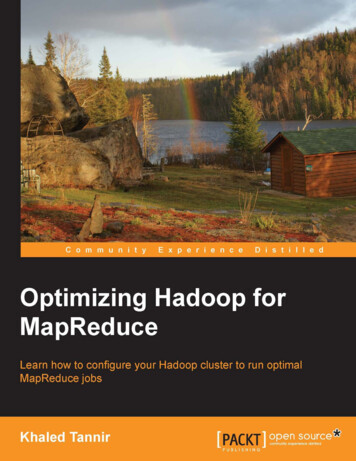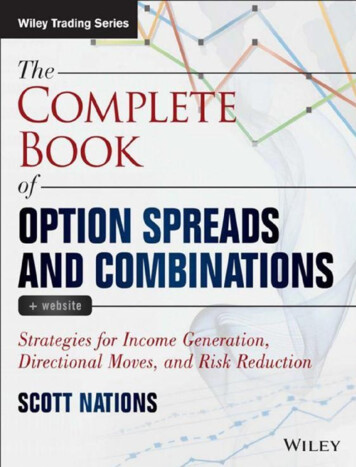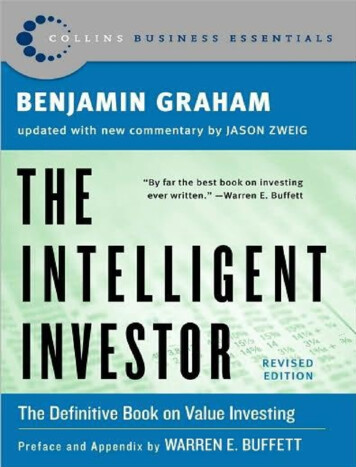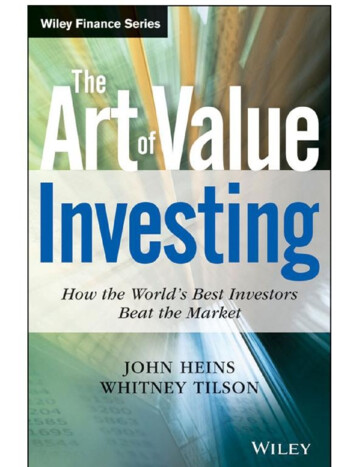
Transcription
ContentsTitle pageDedicationPraise for Dragonfly inAmber
AcknowledgmentsProloguePart OneChapter 1Chapter 2Chapter 3Chapter 4
Chapter 5Part TwoChapter 6Chapter 7Chapter 8Chapter 9Chapter 10
Chapter 11Chapter 12Chapter 13Chapter 14Chapter 15Chapter 16Chapter 17
Part ThreeChapter 18Chapter 19Chapter 20Chapter 21Part FourChapter 22
Chapter 23Chapter 24Chapter 25Chapter 26Chapter 27Chapter 28Chapter 29
Part FiveChapter 30Chapter 31Chapter 32Chapter 33Chapter 34Chapter 35
Part SixChapter 36Chapter 37Chapter 38Chapter 39Chapter 40Chapter 41
Chapter 42Chapter 43Chapter 44Chapter 45Chapter 46Part SevenChapter 47
Chapter 48Chapter 49Books by Diana GabaldonExcerpt from VoyagerCopyright Page
For my husband,Doug Watkins—In thanks for the RawMaterial
“THE PAGESPRACTICALLY TURNTHEMSELVES Gabaldonis a born storyteller Shewrites a prose that is brisk,lucid, good-humored andoften felicitous. Gabaldon isobviously just over thethreshold of a long andprolific career.”—Arizona Republic
Praise forDRAGONFLY INAMBERand Diana Gabaldon“I LOVED EVERY PAGE DIANA GABALDONWEAVES A POWERFULTALE LAYERED INHISTORY AND MYTH.”—Nora Roberts
“MARVELOUS IT IS ALARGE CANVAS THATGABALDON PAINTS,FILLED WITH STRONGPASSIONS ANDDERRING-DO.”—San Francisco Chronicle“COMPULSIVELYREADABLE INTRIGUING Gabaldonoffers a fresh and offbeat
historical view.”—Publishers Weekly“ENGAGING TIMETRAVEL ANAPPEALING MODERNHEROINE AND AMAGNETIC ROMANTICHERO a most entertainingmix of history and fantasywhose author, like its heroine,exhibits a winning
combination of vividimagination and goodcommon sense.”—Kirkus Reviews“BRILLIANT,ASTONISHING ARIVETING HISTORICALNOVEL THAT RIVALSTHE BEST.”—Rave Reviews
AcknowledgmentsThe author’s thanks and bestwishes to:the three Jackies (JackieCantor, Jackie LeDonne, andmy mother), guardian angels
of my books; the four Johns(John Myers, John E.Simpson, Jr., John Woram,and John Stith) for ConstantReadership,Scottishmiscellanea, and generalenthusiasm;JanetMcConnaughey, Margaret J.Campbell, Todd Heimarck,Deb and Dennis Parisek,Holly Heinel, and all theother LitForumites who donot begin with the letter J—
especially Robert Riffle, forplantago, French epithets,ebony keyboards, and hisever-discerning eye; e handwriting, andbotanical advice; MargaretBall, for references, usefulsuggestions,andgreatconversation; Fay Zachary,for lunch; Dr. Gary Hoff, formedicaladviceand
consultation (he had nothingto do with the descriptions ofhowtodisembowelsomeone); the poet BarryFogden, for translations nsandthegenerous use of his mostpoetic name; Kathy AllenWebber,forgeneralassistance with the French (ifanything is still in the wrong
tense, it’s my fault); VondaN. McIntyre, for sharingtricks of the trade; MichaelLee West, for wonderfulcomments on the text, and thesort of phone conversationsthat make my family yell,“Get off the phone! We’restarving!”; Michael Lee’smother, for reading themanuscript,lookingupperiodically to ask hercritically acclaimed daughter,
“Why don’t you writesomething like this?”; andElizabethBuchan,forqueries, suggestions, andadvice—the effort involvedwas nearly as enormous asthe help provided.
PROLOGUEI woke three times in the darkpredawn. First in sorrow,then in joy, and at the last, insolitude. The tears of a bonedeep loss woke me slowly,bathing my face like the
comforting touch of a dampcloth in soothing hands. Iturned my face to the wetpillow and sailed a salty riverinto the caverns of griefremembered,intothesubterranean depths of sleep.I came awake then in fiercejoy, body arched bowlike inthe throes of physical joining,the touch of him fresh on myskin, dying along the paths of
my nerves as the ripples ofconsummation spread frommycenter.Irepelledconsciousness, turning again,seeking the sharp, warmsmell of a man’s satisfieddesire, in the reassuring armsof my lover, sleep.The third time I wokealone, beyond the touch oflove or grief. The sight of thestones was fresh in my mind.A small circle, standing
stones on the crest of a steepgreen hill. The name of thehill is Craigh na Dun; thefairies’ hill. Some say the hillis enchanted, others say it iscursed. Both are right. But noone knows the function or thepurpose of the stones.Except me.
PART ONE
Through aLookingGlass,DarklyInverness, 1968
1MUSTERINGTHE ROLLRogerWakefield stood in
the center of the room,feelingsurrounded.Hethought the feeling largelyjustified, insofar as he wassurrounded: by tables -stylefurniture,replete with antimacassars,plush and afghans, by tinybraided rugs that lay on thepolishedwood,craftilyawaiting an opportunity to
skid beneath an unsuspectingfoot. Surrounded by twelverooms of furniture andclothing and papers. And thebooks—my God, the books!The study where he stoodwas lined on three sides bybookshelves,everyonecrammed past bursting point.Paperback mystery novels layin bright, tatty piles in frontof calf-bound tomes, jammedcheek by jowl with book-club
selections, ancient volumespilfered from extinct libraries,andthousandsuponthousands of rsituationprevailed in the rest of thehouse. Books and paperscluttered every horizontalsurface, and every closetgroaned and squeaked at theseams. His late adoptive
father had lived a long, fulllife, a good ten years past hisbiblically allotted threescoreand ten. And in eighty-oddyears, the Reverend Mr.Reginald Wakefield hadnever thrown anything away.Roger repressed the urge torun out of the front door, leapinto his Morris Minor, andhead back to Oxford,abandoning the manse and itscontents to the mercy of
weather and vandals. Becalm, he told himself,inhaling deeply. You can dealwith this. The books are theeasy part; nothing more thana matter of sorting throughthem and then callingsomeone to come and haulthem away. Granted, they’llneed a lorry the size of arailcar, but it can be done.Clothes—no problem. Oxfamgets the lot.
He didn’t know whatOxfam was going to do witha lot of vested black sergesuits, circa 1948, but perhapsthe deserving poor weren’t allthat picky. He began tobreathe a little easier. He hadtaken a month’s leave fromthe History department atOxford in order to clear uptheReverend’saffairs.Perhaps that would beenough, after all. In his more
depressed moments, it hadseemed as though the taskmight take years.He moved toward one ofthe tables and picked up asmall china dish. It was filledwith small metal rectangles;lead “gaberlunzies,” badgesissued to eighteenth-centurybeggars by parishes as a sortof license. A collection ofstoneware bottles stood bythe lamp, a ramshorn snuff
mull, banded in silver, next tothem. Give them to amuseum?hethoughtdubiously. The house wasfilled with Jacobite artifacts;the Reverend had been anamateurhistorian,theeighteenthcenturyhisfavorite hunting ground.Hisfingersreachedinvoluntarily to caress thesurface of the snuff mull,tracing the black lines of the
inscriptions—the names anddates of the Deacons andTreasurersoftheIncorporation of Tailors oftheCanongate,fromEdinburgh, 1726. Perhaps heshould keep a few of theReverend’schoiceracquisitions but then hedrew back, shaking his headdecidedly. “Nothing doing,cock,” he said aloud, “thisway lies madness.” Or at least
the incipient life of a pack rat.Get started saving things, andhe’d end up keeping the lot,living in this monstrosity of ahouse,surroundedbygenerationsofrubbish.“Talking to yourself, too,” hemuttered.The thought of generationsof rubbish reminded him ofthe garage, and he sagged abit at the knees. TheReverend, who was in fact
Roger’s great-uncle, hadadopted him at the age of fivewhen his parents had beenkilled in World War II; hismother in the Blitz, his fatherout over the dark waters ofthe Channel. With his usualpreservative instincts, theReverend had kept all ofRoger’s parents’ effects,sealed in crates and cartons inthe back of the garage. Rogerknew for a fact that no one
had opened one of thosecrates in the past twentyyears.Roger uttered an OldTestament groan at thethought of pawing throughhis parents’ memorabilia.“Oh, God,” he said aloud.“Anything but that!”The remark had not beenintended precisely as prayer,but the doorbell pealed asthough in answer, making
Roger bite his tongue instartlement.The door of the manse hada tendency to stick in dampweather, which meant that itwas stuck most of the time.Roger freed it with a rendingscreech, to find a woman onthe doorstep.“Can I help you?”She was middle height andvery pretty. He had an overallimpression of fine bones and
white linen, topped with awealth of curly brown hair ina sort of half-tamed chignon.And in the middle of it all,the most extraordinary pair oflight eyes, just the color ofwell-aged sherry.The eyes swept up from hissize-eleven plimsolls to theface a foot above her. Thesidelong smile grew wider. “Ihate to start right off with acliché,” she said, “but my,
how you have grown, youngRoger!”Roger felt himself flushing.The woman laughed andextended a hand. “You areRoger, aren’t you? Myname’s Claire Randall; I wasan old friend of theReverend’s. But I haven’tseen you since you were fiveyears old.”“Er, you said you were afriend of my father’s? Then,
you know already. ”Thesmilevanished,replaced by a look of regret.“Yes, I was awfully sorryto hear about it. Heart, wasit?”“Um, yes. Very sudden.I’ve only just come up fromOxford to start dealingwith everything.” He wavedvaguely, encompassing theReverend’s death, the housebehind him, and all its
contents.“From what I recall of yourfather’s library, that littlechore ought to last you ’tilnextChristmas,”Claireobserved.“In that case, maybe weshouldn’t be disturbing you,”said a soft American voice.“Oh, I forgot,” said Claire,half-turning to the girl whohad stood out of sight in thecorner of the porch. “Roger
Wakefield—mydaughter,Brianna.”Brianna Randall steppedforward, a shy smile on herface. Roger stared for amoment, then rememberedhis manners. He stepped backand swung the door openwide, momentarily wonderingjust when he had last changedhis shirt.“Not at all, not at all!” hesaid heartily. “I was just
wanting a break. Won’t youcome in?”He waved the two womendown the hall toward theReverend’s study, noting thatas well as being moderatelyattractive, the daughter wasone of the tallest girls he’dever seen close-to. She had tobe easily six feet, he thought,seeing her head even with thetop of the hall stand as shepassed. He unconsciously
straightened himself as hefollowed, drawing up to hisfull six feet three. At the lastmoment, he ducked, to avoidbanging his head on the studylintel as he followed thewomen into the room.“I’d meant to come before,”said Claire, settling herselfdeeper in the huge wingchair. The fourth wall of the
Reverend’sstudywasequipped with floor-to-ceilingwindows, and the sunlightwinked off the pearl clip inher light-brown hair. Thecurls were beginning toescapefromtheirconfinement, and she tuckedone absently behind an ear asshe talked.“I’d arranged to come lastyear, in fact, and then there
was an emergency at thehospital in Boston—I’m adoctor,” she explained, mouthcurling a little at the look ofsurprise Roger hadn’t quitemanaged to conceal. “But I’msorry that we didn’t; I wouldhave liked so much to seeyour father again.”Roger rather wonderedwhy they had come now,knowing the Reverend wasdead, but it seemed impolite
to ask. Instead, he asked,“Enjoyingabitofsightseeing, are you?”“Yes, we drove up fromLondon,” Claire answered.She smiled at her daughter. “Iwanted Bree to see thecountry; you wouldn’t think itto hear her talk, but she’s asEnglish as I am, though she’snever lived here.”“Really?” Roger glanced atBrianna. She didn’t really
look English, he thought;aside from the height, she hadthick red hair, worn looseover her shoulders, andstrong, sharp-angled bones inher face, with the nose longand straight—maybe a touchtoo long.“I was born in America,”Brianna explained, “but bothMother and Daddy are—were—English.”“Were?”
“My husband died twoyears ago,” Claire explained.“You knew him, I think—Frank Randall.”“FrankRandall!Ofcourse!” Roger smackedhimself on the forehead, andfelt his cheeks grow hot atBrianna’s giggle. “You’regoing to think me a completefool, but I’ve only justrealized who you are.”The name explained a lot;
Frank Randall had been aneminent historian, and a goodfriend of the Reverend’s; theyhad exchanged bits ofJacobite arcana for years,though it was at least tenyears since Frank Randall hadlast visited the manse.“So—you’ll be visiting thehistoricalsitesnearInverness?” Roger hazarded.“Have you been to Cullodenyet?”
“Notyet,”Briannaanswered. “We thought we’dgo later this week.” Heranswering smile was polite,but nothing more.“We’re booked for a tripdown Loch Ness thisafternoon,” Claire explained.“And perhaps we’ll drivedown to Fort Williamtomorrow, or just poke aboutin Inverness; the place hasgrown a lot since I was last
here.”“When was that?” Rogerwondered whether he oughtto volunteer his services astourguide.Hereallyshouldn’t take the time, butthe Randalls had been goodfriends of the Reverend’s.Besides, a car trip to FortWilliam in company with twoattractive women seemed amuchmoreappealingprospect than cleaning out the
garage, which was next on hislist.“Oh, more than twentyyears ago. It’s been a longtime.” There was an odd notein Claire’s voice that madeRoger glance at her, but shemet his eyes with a smile.“Well,” he ventured, “ifthere’s anything I can do foryou, while you’re in theHighlands ”Claire was still smiling, but
something in her facechanged. He could almostthink she had been waitingfor an opening. She glancedat Brianna, then back toRoger.“Since you mention it,” sh
Praise for Dragonfly in Amber. Acknowledgments Prologue Part One Chapter 1 Chapter 2 Chapter 3 Chapter 4. Chapter 5 Part Two Chapter 6 Chapter 7 Chapter 8 Chapter 9 Chapter 10. Chapter 11 Chapter 12 Chapter 13 Chapter 14 Chapter 15 Chapter 16 Chapter 17. Part Three Chapter 18 Chapter 19 Chapter 20 Chapter 21 Part Four Chapter 22. Chapter 23 Chapter 24 Chapter 25 Chapter 26 Chapter 27
